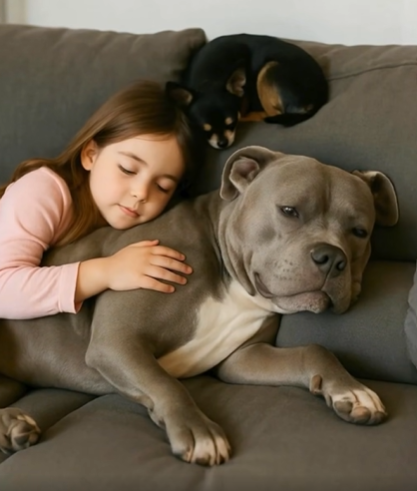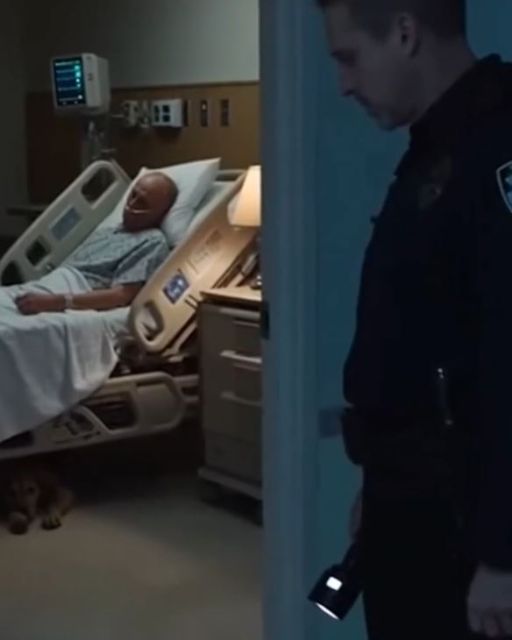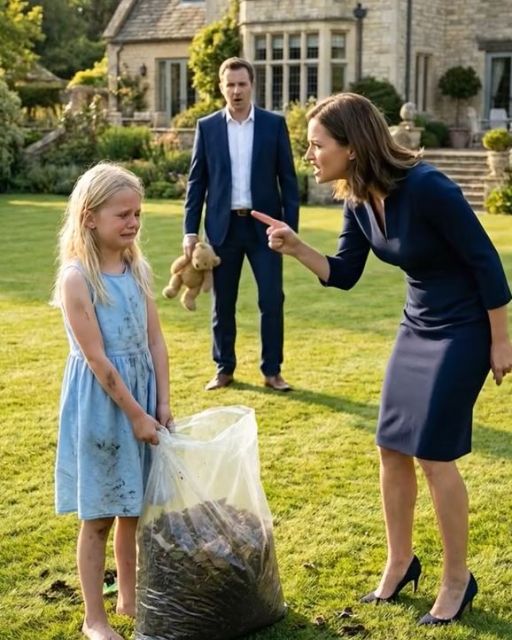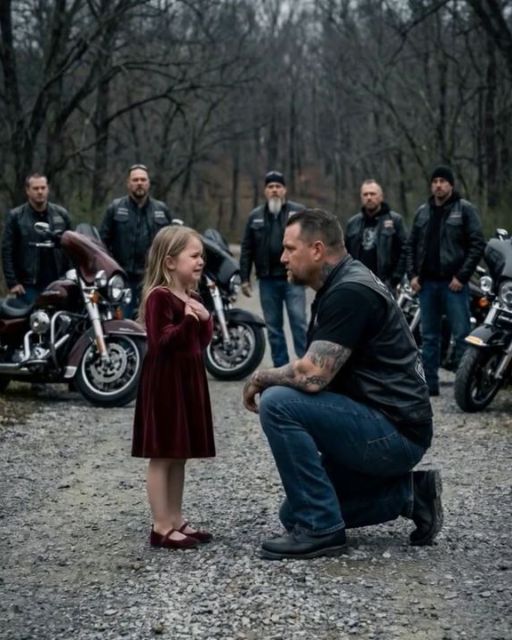We rescued Tank six months after the divorce. He had been labeled “unadoptable” at the shelter—too big, too strong, with an “intimidating presence.” But I could see the way he flinched when someone raised their voice, how he gently sat down when my daughter, Leila, peeked at him through the kennel door.
He didn’t bark. He just waited.
Against everyone’s advice, I brought him home.
Leila was five and hadn’t slept through the night since her dad left. The nightmares, bedwetting, and 3 a.m. sobbing fits—it broke my heart. Therapists tried, but nothing worked.
Then one night, Leila crawled onto the couch where Tank had fallen asleep, his legs sprawled out like a tired old bear. She tucked herself beside him and whispered, “Don’t worry, I’ve got nightmares too.”
Tank didn’t move.
But she stayed there all night.
From then on, she called him her “dream bouncer.” She said that when Tank was around, the bad dreams couldn’t get in.
It was working. Until someone in the building complained.
They said there was a dangerous dog in the complex, that their child was “terrified.” Management showed up with a clipboard and a thinly veiled threat: Remove the dog or face consequences.
I looked at Tank—curled up with Leila, her fingers gently resting on his ear—and I knew what I had to do.
But I also knew I wasn’t going down without a fight.
First, I tried reason.
I invited the building manager, Mrs. Helmsley, over one evening. I had made some tea, even bought those fancy butter cookies from the European section at the grocery store.
She didn’t touch a thing.
Tank sat calmly in the corner the entire time, tail thumping once in a while, watching like he knew what was going on.
“He’s quiet,” she admitted, arms folded. “But you know how people are. One complaint, and we have to act.”
“Act how?” I asked, my voice tight. “He hasn’t done anything. He sleeps most of the time. He’s never barked, never lunged, never even sniffed anybody the wrong way.”
“I understand,” she said, in that way people do when they don’t really mean it.
So I tried letters. Then a petition. I knocked on doors, some more welcoming than others. I even brought Leila along to show people the truth of who Tank really was. A gentle giant. A bedtime bodyguard.
Some neighbors signed. A few even confessed that they had been nervous too—until they saw how he waited by the school bus every afternoon, tail wagging, never stepping a paw out of place.
Still, one family—Apartment 3B—wouldn’t budge.
They had a small boy, Milo, who, apparently, had a bad experience with a dog before. Their fear was real, and I understood it. But Tank wasn’t that dog. And more than that… we needed him.
One morning, about two weeks later, I woke up to the sound of crying.
Not Leila.
It was coming from the hallway.
I opened the door to find Milo from 3B sitting on the floor, clutching his knee, blood dripping down his shin. His bike had tipped near the elevator.
Tank heard it too. He padded past me slowly and stopped in front of Milo. He didn’t lick. He didn’t sniff.
He just sat.
Milo looked up, eyes wide, but not scared. His crying slowed. “Is he gonna eat me?” he asked in a small, wobbly voice.
I laughed, more out of relief than anything. “No, sweetie. He’s waiting to make sure you’re okay.”
Milo looked at Tank. Tank blinked.
“You can pet him if you want,” I said gently.
To my surprise, Milo reached out and laid a hand on Tank’s back. “He feels like my teddy bear,” he whispered.
That moment? It changed everything.
Later that afternoon, Milo’s mom knocked on my door, eyes red-rimmed. She’d heard the story from her son.
“I… I think I’ve misjudged him,” she said, biting her lip. “I’m sorry. We were just scared.”
I nodded. “I get it. But thank you.”
She hesitated, then added, “Milo wants to know if Tank can come to his birthday party next weekend.”
I almost laughed. “I’ll check his schedule.”
Eventually, management dropped the issue.
Not because they suddenly loved dogs, but because the complaints stopped coming. Word got around. Tank had become a sort of unofficial mascot of the building.
People left out old blankets for him in the hallway. Someone anonymously dropped off a box of toys labeled “FOR TANK – THE GOOD BOY.”
Even Mrs. Helmsley started greeting him with a nod and a scratch behind the ear.
Leila slept through the night more often now. Sometimes she’d read to Tank before bed, showing him the pictures and pointing out which characters were the “bad guys.” He’d watch quietly, head tilted, as if trying to understand.
I knew he couldn’t actually keep nightmares away. But in Leila’s mind—and maybe in mine—he did.
Then came the fire.
It was late March, during a cold snap. A space heater in the unit above ours caught a curtain. Smoke alarms blared, and the building turned into chaos.
I grabbed Leila and her coat, calling for Tank.
But he wasn’t in his usual spot.
I screamed his name. Nothing.
We made it outside, coughing and shaking. The building was lit up with flashing lights. Firefighters yelled instructions. I scanned the crowd, heart pounding.
Still no Tank.
Then I heard the shout: “There’s a dog still inside!”
Tank had run back in.
For Milo.
The little boy had hidden under his bed, frozen with fear, and no one realized he was missing—except Tank. Somehow, he’d known.
The firefighters brought them both out, Tank with smoke-darkened fur, tail still wagging weakly. Milo was crying, holding onto him for dear life.
Tank collapsed on the grass, chest heaving.
I knelt beside him, sobbing. “You stupid, brave, beautiful boy.”
He licked my hand once, then passed out.
He spent three nights at the vet hospital. Third-degree burns on one paw. Smoke inhalation. They weren’t sure if he’d pull through.
We slept on a bench in the waiting room.
Then on the fourth morning, we heard the soft thump-thump-thump of his tail from behind the metal door.
Tank made it.
We came home to a charred apartment, but with a hero by our side.
Local news picked up the story. They called him “The Dog That Saved A Boy.” Donations came in. Someone started a GoFundMe for his medical bills. Another person offered us a temporary apartment, rent-free, while repairs were done.
Tank got fan mail.
Leila got her peace back.
And me? I got proof that sometimes, the best decisions are the ones everyone tells you not to make.
Life has a way of giving second chances through unexpected messengers.
Tank was supposed to be “unadoptable.”
Too big. Too broken. Too dangerous.
But in our home, he became the protector of dreams, the rescuer of children, and the glue that held us together.
We didn’t save him.
He saved us.
If this story touched your heart, give it a like ❤️ and share it with someone who believes in second chances.
You never know what one act of compassion might grow into.




